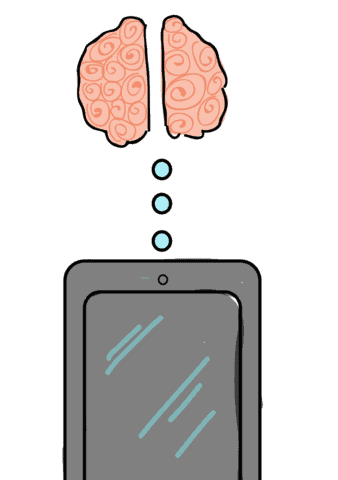These days, it seems like there’s a smartphone app for just about every situation. From dating, to driving to drinking water, technology has found a way to improve them all. It’s unsurprising, then, that there are a whole slew of apps that promise to help users manage stress, anxiety and other mental health issues.
As someone who lives — and copes — with anxiety and depression, I’m always on the lookout for new ways to support my mental health, including smartphone apps that I can use between appointments or on the go.
I preface this article by saying that smartphone apps are in no way a replacement for actual professional mental health services. Students that are struggling with  mental wellness should seek help from a doctor, Student Counseling Services or other support systems.
mental wellness should seek help from a doctor, Student Counseling Services or other support systems.
That being said, mental health apps can still play a part in student wellness. They are great for smaller moments of stress and as a supplement to professional treatment. I’m definitely in favour of anything that can help improve my mental health. Hopefully, one of these apps might help you too!
All of these apps are available to download for free on both iPhone and Android systems.
1. Pacifica: Pacifica is an app that allows users to track and monitor their anxiety symptoms, while also providing access to various resources and coping mechanisms. You can record your own thoughts and feelings over time, which may help you notice patterns of stress or potential triggers.
2. Breath2Relax: When you’re anxious, it can be difficult to focus on even the most basic things — even essential things like regular breathing. Breath2Relax leads users through diaphragmatic breathing exercises, which force you to slow down and take deep, relaxing breathes. The app also lets you record stressors and provides links to information about stress.
3. Recovery Record: This is a great app for those that are recovering from an eating disorder or anyone who just struggles with eating regular meals. Recovery Record gives gentle reminders around mealtimes. Unlike other food trackers, the app doesn’t keep track of calories; instead, it prompts users to keep track of the feelings and situations surrounding their meals, keep track of recovery goals and access a community of other users and mental health professionals.
4. Sleep Cycle: Sleep is one of the most important, but often overlooked, components of mental health. All too often, busy students — myself included — get caught in a vicious cycle of late nights and caffeine-fueled afternoons. Sleep Cycle tries to break that pattern by helping you get the best night’s sleep possible. The app monitors your sleep habits through sound and movement and aims to wake you up gradually during your lightest phase of sleep, hopefully ensuring a more restful night.
5. MindShift: Designed specifically for teens and young adults, MindShift is a joint project between AnxietyBC and the British Columbia Children’s Hospital. MindShift helps users rethink the way that they view their anxiety, as well as linking them to specific tools that help with things like sleep, test anxiety and panic attacks.
Mental wellness is a complicated issue to address. Just as no person will deal with the exact same symptoms or difficulties as someone else, no solution will be a perfect fit for everyone.
One of the benefits of living in an increasingly technological age is the nearly infinite access we have to a variety of different resources. Although not a substitute for professional mental health services, smartphone apps are one of many resources that are available to us.
When it comes to mental health, we should do everything we can to take care of ourselves — and in 2016, there’s an app for that.
—
Emily Klatt / Sports & Health Editor
Graphic: Lesia Karalash / Graphics Editor
Leave a Reply